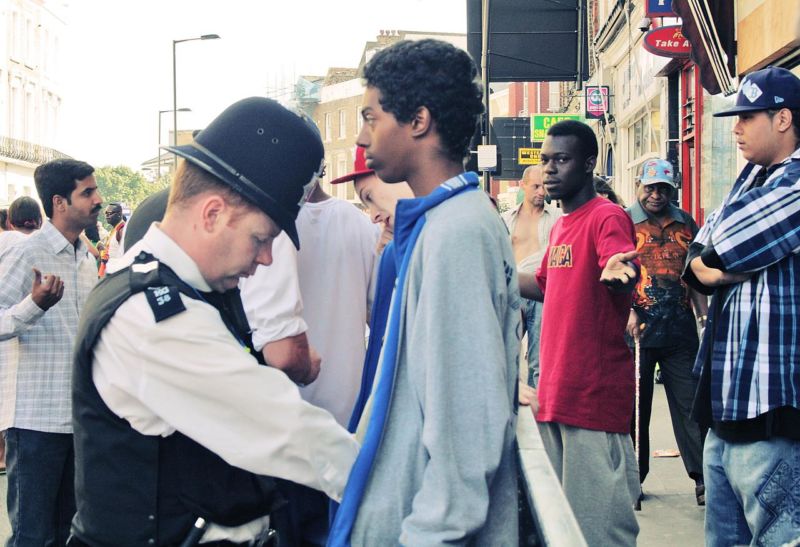Aggressive police policies may backfire

Enlarge (credit: Petras Gagilas)
What's the impact of aggressive policing policies, like New York City's former "stop and frisk" approach to high-crime communities? The evidence suggests that aggressive policing can work to lower the crime rate in some neighborhoods, but it also comes at a cost: lots of innocent individuals stopped and resentment of the police within some communities. While crime statistics are relatively easy to gather, these later issues are much harder to quantify.
But a team of US-based researchers has now attempted to do so, tracking a group of minority male students over a couple of years. Their results suggest that interactions with the police cause distress among these students, and that distress ultimately leads to what they term delinquency-which can include more crime.
Mixed recordThe general concept of proactive policing involves putting more police out in high-crime neighborhoods, with the expectation that they'll act as a deterrent to criminal activity. But a large number of approaches that fall under this umbrella lead to a somewhat mixed record. "Although most quantitative studies support that proactive policing is associated with reduced crime," the new paper notes, "there is no consensus in the literature: some studies find no relationship, whereas others find that proactive policing may be counterproductive." In addition, most existing studies have focused on short-term changes in crime rates rather than long-term ones.
Read 10 remaining paragraphs | Comments